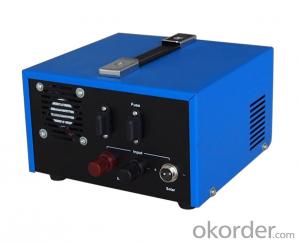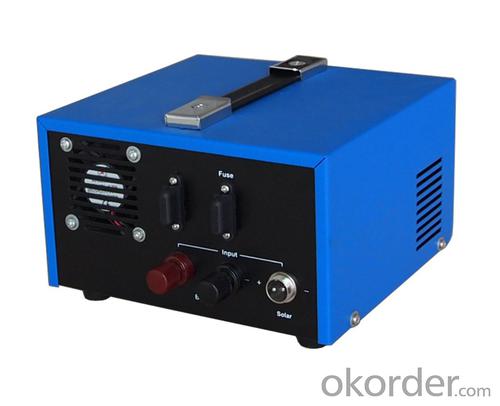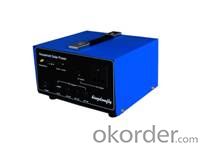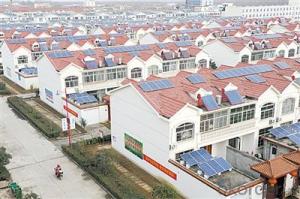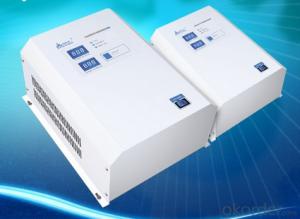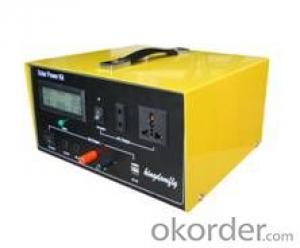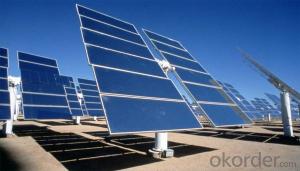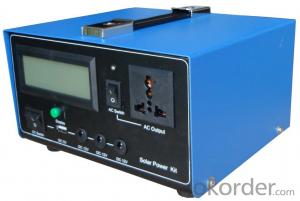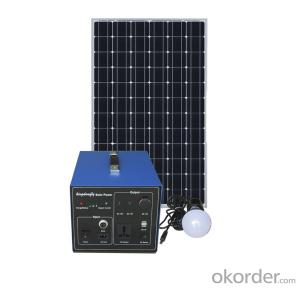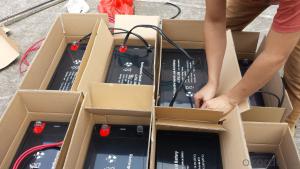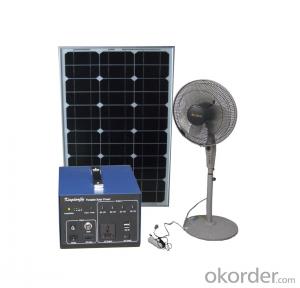Best Residential Solar Energy Systems - SPK_300_LED Solar Power System Hot Selling
- Loading Port:
- China main port
- Payment Terms:
- TT or LC
- Min Order Qty:
- 3 pc
- Supply Capability:
- 10000 pc/month
OKorder Service Pledge
OKorder Financial Service
You Might Also Like
Main Information
KDF SPK_300_LED This product is high performance,family used portable solar power system,which can receive energy and store it in battery outside connected to SPK by solar energy on sunny day,and supplies electric power for varies appliances such as electric fan,lighting lamps, television, portable computer etc.It can supply power for both DC and AC electric application.It’s very helpful and useful for home electric supply.
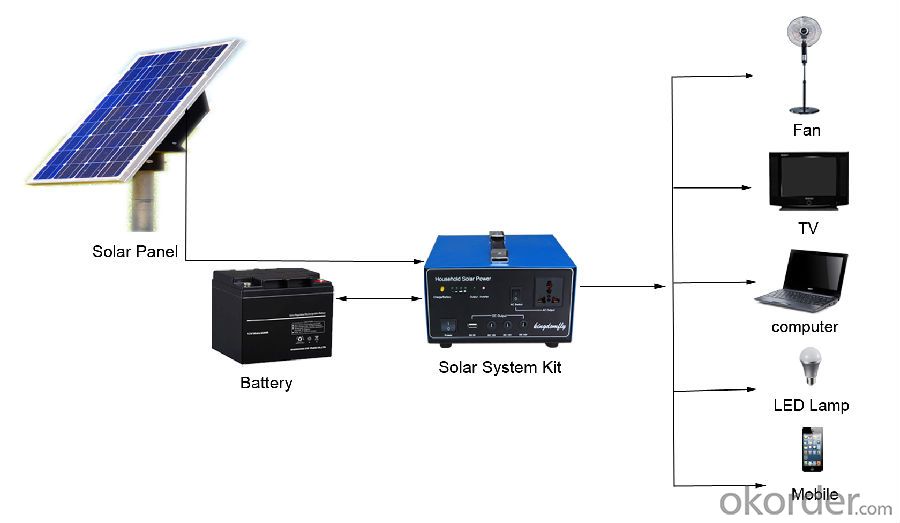
Features:
◆ Battery puts outside connected to the SPK for user to choose battery in recommended range, and easily to exchange battery.
◆ Both DC and AC output
◆ Solar Feedback Circuit Protection
◆ Output Short-circuit Protection
◆ Solar「+」「-」anti-access protection
◆ Output「+」「-」anti-access protection
◆ Over Charged Protection
◆ Over Discharged Protection
◆ Over Load Protection
◆ Over-Temperature Protection
Technical parameters
Specification | Value/Material | |
Item No. KDF | SPK_300_LED | |
Solar Recommended | Specification | Poly silicon |
Working Voltage/Power | 18V80W~120W | |
Battery Recommended | Rated Voltage/Capacity | 12V65AH~100AH |
Specification | Lead Acid | |
Charging Controller | Operating Voltage | 12V |
Input Voltage | 17.3V~21V | |
Input current | MAX:10A | |
Power Consumption | MAX: 5mA | |
Low Voltage Disconnect(LVD) | 10.8V | |
Low Voltage Reconnect(LVR) | 12.3V | |
High Voltage Discharge( HVC) | 14.6V | |
High Voltage Recharge(HVR) | 13.8V | |
Temperature Protection | 60℃ | |
DC Output | DC output & Application | USB 5V2A |
DC output & Application | DC 12V1*3A | |
AC Output | Output Wave | modified sine wave |
Input Voltage | 11V~15V | |
Output Voltage | 110V±10% | |
Output Frequency | 60Hz±2Hz/50Hz±2Hz | |
Rated Output Power | 300W | |
Maximum VA | 600VA | |
Maximum Efficiency | 88% | |
Temperature | 0-40℃ | |
Over Temperature | 60℃~70℃ | |
Low Voltage Alarm | 11V | |
Low Voltage Shut off | 10.5V | |
High Voltage Shut off | 16V | |
Package | Set size | 278*240*172mm |
Set N·W | 2.8kg | |
Set N·W | 3.6kg | |
- Q: How do solar energy systems impact water consumption?
- The utilization of solar energy systems has a beneficial effect on water usage. An important advantage of solar energy is its independence from water for electricity generation, unlike traditional fossil fuel power plants which heavily rely on water for cooling. This is significant as conventional power generation processes consume enormous amounts of water, contributing to water scarcity problems in various regions. On the other hand, solar energy systems utilize photovoltaic (PV) panels or concentrated solar power (CSP) technology to convert sunlight into electricity. These systems operate without the need for water, resulting in a considerable decrease in water consumption. This is especially crucial in areas with limited water resources or regions prone to drought, as solar energy offers a more sustainable and environmentally friendly alternative. Additionally, solar energy systems can indirectly contribute to water conservation. By replacing traditional energy sources with solar power, carbon emissions are greatly reduced, thereby mitigating the effects of climate change. This, in turn, helps to preserve water resources as climate change is known to worsen droughts and alter precipitation patterns. Moreover, solar energy systems can be combined with water-efficient technologies to further enhance water conservation efforts. For instance, solar-powered water pumps can be employed for irrigation, reducing the reliance on fossil fuel-powered pumps that consume substantial amounts of water. This integration of solar energy and water-saving technologies can lead to even greater water conservation and more sustainable agricultural practices. In conclusion, solar energy systems positively impact water consumption by eliminating the need for water in electricity generation and reducing carbon emissions. By promoting the adoption of solar power, we can contribute to water conservation efforts and create a more sustainable future.
- Q: Can solar energy systems be used in areas with strict noise regulations?
- Yes, solar energy systems can be used in areas with strict noise regulations. Solar energy systems are typically silent as they do not have any moving parts, unlike traditional power generation systems such as generators. Therefore, they comply with noise regulations and can be installed and operated without causing any noise disturbances.
- Q: Can solar energy systems be used for powering medical equipment in remote areas?
- Yes, solar energy systems can be used to power medical equipment in remote areas. Solar panels can generate electricity from sunlight, which can be stored in batteries for continuous power supply. This renewable energy source is reliable and sustainable, making it an ideal solution for remote healthcare facilities that lack access to the grid. Solar energy systems can provide a consistent power source for medical equipment such as diagnostic devices, refrigeration units for vaccines and medicines, lighting, and communication devices, improving healthcare delivery in remote areas.
- Q: Can solar energy systems be used for powering electric car manufacturing plants?
- Indeed, electric car manufacturing plants can utilize solar energy systems. These systems harness the power of sunlight to generate electricity, which can then be utilized for diverse industrial operations, including the functioning of manufacturing plants. By implementing solar panels on the rooftops or open areas of the manufacturing facility, the plant can effectively tap into renewable energy to satisfy its electricity requirements. This not only diminishes the dependency on fossil fuels but also aids in curbing greenhouse gas emissions linked to conventional electricity generation. Moreover, by integrating energy storage solutions, solar energy systems ensure a consistent power supply, even during periods of limited sunlight or nighttime. Consequently, opting for solar energy systems to power electric car manufacturing plants is a sustainable and environmentally conscious decision.
- Q: Can a solar energy system be installed on a sports field or stadium?
- Yes, a solar energy system can be installed on a sports field or stadium. This can help generate clean and renewable energy to power the facility, reduce electricity costs, and promote sustainability. Additionally, the large surface area of sports fields and stadiums provides ample space for the installation of solar panels or solar canopies.
- Q: Can solar panels be installed on agricultural land without affecting crop production?
- Yes, solar panels can be installed on agricultural land without significantly affecting crop production. With proper planning and design, solar panel installations can be integrated into agricultural landscapes to minimize any negative impacts on crop growth. Techniques such as ground-mounted panels, elevated structures, or agrovoltaic systems can be implemented to optimize land use and allow for continued cultivation. Additionally, solar panels can provide benefits to agricultural operations by providing shade, reducing water evaporation, and generating additional income for farmers through energy production.
- Q: Can solar energy systems be installed on roofs?
- Yes, solar energy systems can be installed on roofs. In fact, rooftops are one of the most common locations for solar panel installations, as they offer ample space and direct access to sunlight. This allows for efficient harnessing of solar energy to generate electricity or heat water.
- Q: Can a solar energy system increase the value of my home?
- Yes, a solar energy system can increase the value of your home. Studies have shown that homes with solar panels tend to sell for a higher price and have a faster selling time compared to homes without solar. This is because solar energy systems offer long-term cost savings on electricity bills and are seen as environmentally friendly, which appeals to homebuyers who are increasingly interested in sustainable and energy-efficient features. Additionally, some states offer incentives and tax credits for homeowners with solar, further adding to the financial benefits.
- Q: Can solar energy systems be installed without professional help?
- No, solar energy systems should always be installed by professionals to ensure proper and safe installation, as well as to maximize their efficiency and longevity.
- Q: Can solar energy systems be used for powering telecommunications infrastructure?
- Yes, solar energy systems can be used to power telecommunications infrastructure. Solar panels can be installed on rooftops or in open spaces to harness sunlight and convert it into electricity. This renewable energy can then be used to power communication towers, equipment, and other telecommunications infrastructure, providing a sustainable and reliable energy source. Additionally, solar energy systems can be combined with battery storage solutions to ensure uninterrupted power supply even during periods of low sunlight or at night.
Send your message to us
Best Residential Solar Energy Systems - SPK_300_LED Solar Power System Hot Selling
- Loading Port:
- China main port
- Payment Terms:
- TT or LC
- Min Order Qty:
- 3 pc
- Supply Capability:
- 10000 pc/month
OKorder Service Pledge
OKorder Financial Service
Similar products
Hot products
Hot Searches
Related keywords
